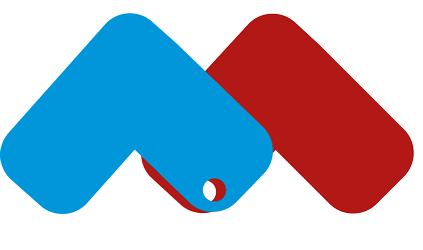Authored by Dr. Lehan Stemmet
We have all heard the buzz words and have seen the models from Management By Objectives and Management By Walkabout to SMART goals, with the added C for “Challenging” and numerous other theories and models all with a singular aim: to increase productivity and mobilize the people working in our organizations.
There is a fundamental and critical issue with most of these models and theories we have all heard of, studied, taught, coached, mentored and practiced. They lack something that is of the utmost importance to human beings; the very ethos of our organizations. Rather than looking at many specific issues and solutions, this article briefly reflects on the underlying philosophy.
Ask yourself and consider this question with much personal reflection:
When was the last time you went to the office, or wherever else you perform the tasks you need to complete as part of your job and flipped a switch which turned you on, ready for a day’s work at performance levels that would impress most leaders and managers?
If you are tasked with leading or managing teams, this question needs even deeper reflection beyond your own experience: when last have you been able to flip on a switch to engage the people in your team and organization?
Few individuals feel that they do. They feel that they work hard, and indeed some feel that they work extremely hard, but very few say that they actually perform well, let alone exceptionally well. With the increase in technology, manual labor might have decreased in some industries and job functions, but with it, there is an increase in office work to the point where the average office worker appears to be a modern-day assembly line administrator, even those who work at relatively senior levels in our organizations.
The trouble with this kind of assembly-line administration work many people experience is that it tends to erode more than just morale. Numerous mainstream and research publications addressing job satisfaction, leadership, management, organizational development, organizational behavior, stress management, etc mention something in the lines of: “managers should ensure their people are…,” “make work meaningful…,” “…work should have purpose…,” and so the list goes on.
So it is no secret that we need to make work purposeful and need to ensure that it has meaning. Most of us may naturally respond with “… But how?
Office work and many of the tasks we need to perform are simply administrative and routine-based? That’s just the way it is.” Indeed a lot of the tasks we perform tend to be repetitive and seemingly meaningless… to the point where a teambuilding exercise or weekend away adds to rather than mitigate the effects of mundane work.
Purpose and meaning! That is what we need to bring into the modern workplace.
But how do we generate purpose and meaning when the tasks are required and we can’t change much about that? What do we do when we cannot really increase empowerment in instances where routine tasks simply follow a process that cannot be changed? Aim to do more teambuilding and daily energizers, increase performance management initiatives, etc?
Just on the last point alone, there have been some articles in the mainstream media reporting the problems with fitting employee performance to the well-known “Bell Curve”, and that it hardly ever fits this normal distribution – going as far as calling it a myth, and that it should be dropped in favor of the Power-Law Distribution.
Tracking employee performance is important, no doubt, and measuring or assessing inputs versus outputs are all important matters in general terms, but often only one-directional, i.e., company to employee. As much as it is important, we ought to ensure that it is not enforced to the point where it comes at the expense of purposeful and meaningful work leading to efficient and effective outcomes.
Whether we’re talking about Bell Curves, Normal Distributions or Power-Law Distributions, it does not negate the fact that every point on the plot is a person, an individual.
It is very easy to fall into the trap of tracking and measuring at the expense of empowering and leading and to spend a disproportionate amount of time on developing and assessing metrics at the expense of getting done what matters to achieving outcomes. We are all aware that metrics do not always tell the whole story. It is a guideline.
We should not confuse the tasks with the ultimate aim and purpose of it in the greater scheme of things. If we want to enhance performance, instead of simply measuring it and trying to correct it via various performance management interventions, try generating purpose and meaning.
As a leader or manager, it can be very challenging because you are under pressure to perform based on the numbers and bottom-line value. It is tricky because we also need to communicate the reality of for example market fluctuations, recessions and the like, but at the same time be compassionate. It is challenging, no doubt.
What meaning can there possibly be in many of the day-to-day routine tasks we and the people working in our teams need to perform? Perhaps that is the fundamental question we need to ask. If the task is merely required for numerical purposes, well, your call and if the task is required because it has knock-on purpose beyond the routine nature of the task, keep it.
When workers lay the first railway lines, there was purpose beyond the tasks they were performing. When the first roads were built, there was purpose beyond the tasks they were performing. When the first water channels were dug, there was purpose… When the first settlers came to their new land, there was purpose.
People are willing to put up with a lot when there is purpose and meaning.
Unfortunately, in most modern organizations we have become almost obsessed with metrics, measurement, goals, targets, productivity measures, performance management, productivity enhancement, engagement and the like whilst at the same time forgetting the ultimate purpose of what our organizations do, and what we do in our different roles.
I vividly remember one of my first jobs, fresh out of university. One of my tasks was to walk around a world-class biotechnology institute a couple of times a day and note down the temperature in greenhouses and incubators. This is not exactly what you have in mind after working hard to complete a degree in biochemistry.
What happened to the exciting experiments and conducting world-changing research like they do in the movies? Boring, mundane, mind-numbing and meaningless work! But, here’s what I didn’t consider until someone I respected pointed it out to me.
“By making sure you monitor the temperature, we make sure our experiments run as planned, which could impact hugely on our findings and recommendations… recommendations that can save forests, industries, communities globally,” and afterwards I thought to myself, “even the family who relies on their breadwinner bringing home an income from working at a company involved in the supply chain benefiting from these forests.” Suddenly Purpose and meaning appeared out of something very mundane!
Often purpose and meaning can only be found outside of the job we are employed to do. Perhaps we can find ways to encourage people beyond the job they are employed to do.
Supporting them in other parts of their lives. It need not require any financial incentives, but encouraging people in other parts of their lives will help them feel more engaged in something that is bigger and beyond the hours they spend at work.
If we spend 8 hours a day at work, 5 days a week… that is less than 25% of all the hours in a week. If we only count the hours we’re awake in a week, assuming we sleep 8 hours a night, we spend only 35% of our time at work. That leaves a large portion of time available to use purposefully, to be intentional about other more important things in our lives.
Perhaps we can also take more individual responsibility to find purpose beyond the work we do. Perhaps the work is the purpose allowing us to do other things we were not able to do if we didn’t have the work.








